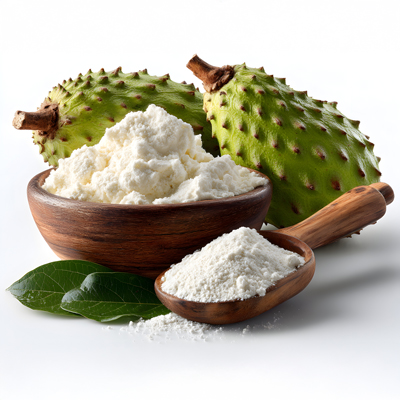Pregnancy
All information about "Pregnancy" and the related magazine articles can be found here.
Our articles are written clearly and link to scientific studies where relevant. This is how we meet our own standards: we regularly deliver new, high-quality content for you—free of charge, no sign-up required, with the highest possible benefit to you.

Berry power through the summer - with antioxidants & vitamin C
Local berries provide flavonoids, vitamin C and antioxidants - good for the heart, immune system and freshness.
Summertime is berry season - perfect for an active, healthy lifestyle. Local berries such as blackcurrants and blueberries are not only delicious, but also rich in vitamin C and flavonoids. They support cell protection, strengthen the blood vessels and boost your vitality.

Yam root & vitamin C
Natural nutrients for energy, skin glow & hormonal balance
Do you often feel tired or does your skin long for freshness? Learn how yam stabilizes your mood and vitamin C (ascorbic acid) provides your collagen boost - easy to integrate into your daily routine!

Blood sugar under control: How chromium stabilizes naturally
Chromium helps to regulate blood sugar fluctuations. For more energy and balance.
Chromium protects cells from sugar damage, has an antioxidant effect and stabilizes blood sugar - without any artificial additives. Ideal for greater well-being and fewer cravings, especially in the sugar-rich summer.

Stay mineralized when it gets hot
Stay fit through the summer with calcium and magnesium from sango coral
If heat, sweating and circulatory problems are getting to you, a good supply of minerals is crucial. Find out here how calcium and magnesium from sango coral can support you naturally.

Hormones in sync: For a vacation full of well-being
Beta-sitosterol & zinc: companions for hormonal balance on vacation
The suitcase is packed, the anticipation is huge - but what if the hormones find their own rhythm on vacation? New surroundings can keep the body on its toes. Fortunately, there is a natural dream team: beta-sitosterol and zinc. Find out here how this duo keeps the balance and gives you carefree vacation days!

Plant-based protective shield for your summer
Graviola - For support with inflammation and sensory overload
Are you dreaming of a warm season full of serenity in which your body vibrates in harmony? Graviola can help you maintain inner balance and gently support you through the challenges of inflammatory reactions or sensory overload. Discover how this exotic plant can contribute to your summer well-being.

Your Circulation Compass: Naturally in balance with nattokinase & OPC
Gentle support from nature for your well-being and vital blood vessels
Does your inner rhythm sometimes falter and your sense of well-being diminish? With nattokinase and OPC, nature offers a gentle way to harmonize your circulation and care for your blood vessels. Discover here how this duo can lead you back to new balance and vitality!

Awake in the moment, focused through long summer days with caffeine
Your kick for concentration and joie de vivre
Do you dream of experiencing the endless summer days with full presence and a clear head instead of fighting fatigue? Caffeine can be your natural ally to sharpen your focus and enjoy every ray of sunshine, every adventure with awareness and energy. Discover here how to make your summer moments more alert!

Your rest compass for the summer: Naturally in balance with saffron.
Gentle support from nature for mental serenity and your well-being
Does your inner rhythm sometimes falter in the hustle and bustle of everyday life and does your serenity wane? With saffron, nature offers a valued way to harmonize the carousel of thoughts and cultivate your inner center. Discover here how the red gold can lead you back to new balance and lightness.

Inner peace for hot days, with GABA and rose root extract
Support your nervous system with herbal active ingredients that can reduce stress, stabilize your mood and promote your mental balance even in the summer heat.
Summertime often brings stress due to heat, travel or busy schedules. GABA and the adaptogenic rose root extract help you to get through the summer more calmly by promoting your stress resistance and inner peace. So you can enjoy your emotional balance and greater well-being.

Light legs, light day. How horse chestnut, vitamin C and OPC help against heaviness
Discover how proven plant extracts and vitamins can relieve the feeling of heavy legs. For more lightness in everyday life for mom, grandma & co.
Heavy legs after a long day? Horse chestnut, vitamin C and OPC can promote blood circulation, strengthen the veins and noticeably relieve the feeling of tired, weighed-down legs. Ideal for anyone who stands a lot, walks a lot or simply wants to stay active in everyday life. Whether mom is out shopping or grandma is out for a walk. Find out how these natural active ingredients support your leg health and give you new lightness.

Mental strength in summer?
Ashwagandha and roseroot help you stay calm and alert on hot days
Summer brings light, energy and sometimes a lot of stress. So it's a good thing that nature has two herbal allies in the form of ashwagandha and roseroot, which can promote mental balance and resilience. Find out more!

Rescue for cozy summer evenings
Natural mosquito repellent with vitamin B1 & essential oils
Whether it's a garden party or an evening stroll: as soon as it starts buzzing, the mood is gone. Vitamin B1 and essential oils such as citronella or lavender can help to gently keep mosquitoes away. How does this work? Read here how natural remedies ensure carefree summer evenings.

Summer, sun, full concentration!
How phosphatidylserine and omega-3 can boost your concentration
The sun is shining but your concentration is waning? Discover how phosphatidylserine and omega-3 fatty acids can naturally boost your mental performance.

Relaxed baby bump: Natural support with inositol, folic acid, cranberry & D-mannose
Balance and well-being for women who want to have children or during pregnancy
Wanting to have children or already pregnant? A lot changes during this special phase. Smart nutrients such as inositol, folic acid, cranberry and D-mannose can provide targeted support: They promote hormonal balance, strengthen the urinary tract and bring more balance to everyday life. Find out now how you can do something good for yourself naturally.

Start your vacation full of energy with potassium & magnesium citrate
How to keep you and your family fit, active and balanced even in the heat
On summer vacation, electrolytes such as potassium and magnesium quickly become unbalanced. This can affect energy, muscles and concentration. Find out here how you can strengthen your inner balance with smart nutrition and targeted supplements.

Strong heart, strong life. Promoting men's health naturally
Gain new energy and vitality with coenzyme Q10, chokeberry as a medicinal plant and targeted care for the cardiovascular system.
The heart is the engine of your life - and men in particular should pay special attention to it. Find out how you can use the effects of coenzyme Q10, the healing power of the aronia berry and a healthy lifestyle to strengthen the function of your cardiovascular system and support your overall health as a man.

When the hormone balance changes
Gentle nutritional support through the menopause
The menopause changes many things - both physically and emotionally. Myo-inositol, vitamin D3 and magnesium can help to boost your well-being, support your metabolism and activate new sources of energy. Find out more here!

Comfort food for super moms
Choline, lecithin & vitamin B12 - powerful micronutrients for a strong pregnancy
Did you know that certain nutrients can have a positive effect not only on your well-being, but also on your baby's development? Choline, lecithin and vitamin B12 are little helpers with a big effect - for strong nerves, clear thoughts and a good gut feeling during this special time.

Playground power for every day
Calcium & vitamin K2: For bone health that grows with you
Whether romping around with the children or the daily balancing act between job and family - strong bones are the stable foundation. Find out how calcium and vitamin K2 can playfully help to strengthen your bones.

Naturally powerful: Turmeric, boswellia & ginger
Learn how to gain more zest for life with plant power
Plant-based active ingredients can help to reduce inflammation and make everyday life more active and mobile - whether in the garden, during sport or on a family outing.

Finally sleep well again - even in summer!
Discover natural sleep aids with melatonin, passion flower & co.
Is the summer light depriving you of sleep? We show you how you can support your sleep-wake rhythm with natural remedies such as melatonin and passionflower.

Sun protection from within - with the power of vitamin A, astaxanthin and omega-3
Strengthen your skin with natural nutrients that reduce oxidative stress, soothe inflammation and prevent premature ageing.
The first rays of sunshine are here - but your skin is particularly sensitive after the winter. Discover how vitamin A, the antioxidant astaxanthin and essential omega-3 fatty acids can protect your skin from the inside out and optimally prepare it for UV radiation. For a radiantly healthy complexion and effective anti-ageing support.

Spring cleaning for the body!
Drain naturally - with nettle, dandelion & potassium
Find out more about dandelion, stinging nettle and potassium to gently drain your body and get back on track with ease!
Optimal Supply During Pregnancy: Tips and Advice for Expecting Mothers
Pregnancy is an incredible journey in a woman's life, marked by physical changes, emotions, and anticipation of the upcoming family member. From the first signs to the birth of the child and beyond, each phase is significant and brings a wealth of questions, hopes, and challenges. From the absence of menstruation and the first pregnancy test to the due date, exciting experiences await. Learn more about the various aspects of pregnancy and get well-founded information and useful advice to support expecting mothers on their journey.
How to Recognize Pregnancy?
The signs of being pregnant can vary from case to case. Typical early symptoms include the absence of menstruation, nausea, fatigue, more sensitive breasts, and increased urination. A pregnancy test can turn positive as soon as the body produces sufficient amounts of the pregnancy hormone hCG, which typically occurs about two weeks after conception. However, a pregnancy test can yield both false positive and false negative results. It is therefore recommended to consult a doctor as soon as possible after a positive pregnancy test or suspicion of pregnancy to confirm implantation and receive necessary medical care. An absent period should also be clarified regardless of the results of a pregnancy test. Some women may experience first signs of being pregnant just a few days after conception, while others may take a little longer to notice changes.
What Helps with Nausea During Pregnancy?
Pregnancy nausea is hormonally induced and often occurs from the fifth or sixth week of pregnancy, but can also occur earlier or later. There are various remedies and strategies that can provide relief from nausea. Some expectant mothers find relief through small, frequent meals (e.g., crispbread) that are rich in carbohydrates and low in fat. Ginger in the form of tea, candies, or capsules can also be useful in reducing nausea and vomiting (1).
Acupressure bracelets worn on the wrist can alleviate nausea in some women (1). It is important to consume enough fluids, especially in the form of clear drinks such as water or ginger tea. In case of severe or persistent symptoms, it is advisable to consult a doctor to discuss further treatment options.
Further useful information on the topic can be found here: /blog/where-does-pregnancy-nausea-come-from
Overview: What Happens in Each Week of Pregnancy?
Pregnancy lasts an average of 40 weeks, divided into three trimesters. The exact number of pregnancy weeks can vary as the time of conception is not always precisely known. To calculate the pregnancy week, the first day of the last menstruation is used as a starting point. There are numerous pregnancy week calculators and tables available to track progress.
Different developments occur in the body of the child and the pregnant woman during each pregnancy week. As the child develops rapidly, it is important for women who decide against having a child to make this decision promptly to consider all available options and, if necessary, take appropriate steps. Abortion is legal in many countries up to the 12th week of pregnancy, but legal regulations may vary depending on the country. It is important for women to receive all available information and support to make an informed decision.
Here is an overview of the pregnancy weeks and the corresponding changes (2):
1.-4. Week: Implantation of the fertilized egg, beginning of organ formation.
5.-8. Week: Developmental phase of organs and body systems, heartbeat of the embryo.
9.-12. Week: Completion of organ formation, formation of finger and toe rudiments.
13.-16. Week: Fetal growth, movements become noticeable, first ultrasound examinations.
17.-20. Week: Developmental phase of the skeletal system, determination of the baby's sex, first movements felt by the pregnant woman.
21.-24. Week: Further fetal growth, developmental phase of the brain.
25.-28. Week: Fetus begins to turn upright, opening and closing of the eyelids.
29.-32. Week: Baby's weight gain, developmental phase of the immune system.
33.-36. Week: Preparation for birth, baby descends into the pelvis.
37.-40. Week: Completion of organ development, baby is ready for birth.
It is important to note that the developmental stages of each baby are individual and may vary from case to case.
When Does the Belly Start to Grow?
The time when the belly starts to grow can vary and depends on various factors, including the woman's individual anatomy, the size of the baby, and whether the mother is pregnant for the first time or not. Typically, women, especially first-time mothers, begin to notice a slight increase in belly size towards the end of the first trimester (around the 12th to 16th week of pregnancy) as the uterus expands and the baby grows. In women who have been pregnant before, the belly may start to grow earlier, possibly around the 10th week of pregnancy or even earlier.
What Helps with Heartburn?
In addition to nausea and vomiting, heartburn is another symptom reported by many pregnant women. Various measures can help against heartburn, including (3):
Small Meals: Instead of large meals, frequent small meals can be consumed to avoid overloading the stomach.
Upright Posture After Eating: Remain upright for at least an hour after eating to prevent stomach contents from entering the esophagus.
Avoidance of Certain Foods: Spicy, fatty, and acidic foods as well as caffeinated beverages can exacerbate heartburn and should be avoided.
Sleeping with Elevated Upper Body: Sleeping with a slightly elevated upper body can help reduce heartburn.
Natural Remedies: Ginger, chamomile tea, or almonds can help alleviate heartburn.
Medication: In some cases, the doctor may recommend taking medication to bind stomach acid to relieve heartburn (3). However, it is important to consult a doctor to ensure the safety and appropriateness of medications during pregnancy.
If heartburn is severe or frequent, it is important to discuss this with a doctor to take appropriate countermeasures. More information on heartburn can be found here.
When Is the Critical Time Over?
The critical phase in pregnancy, also known as the first trimester, typically ends after the first 12 weeks or three months. Complications and miscarriages are more common during these months, especially in the first weeks. After the first trimester, the likelihood of miscarriage and pregnancy complications usually decreases significantly, and the fetus develops and grows in size. However, it is important to note that each pregnancy period is individual, and problems may also occur in later trimesters. It is therefore advisable to pay attention to the health and well-being of the mother throughout the months and to undergo regular check-ups from the absence of menstruation.
From When Is a Baby Viable Outside the Womb?
A baby is generally considered viable outside the womb from the 24th week of pregnancy, as at this stage the organs and systems of the fetus are sufficiently developed to survive outside the uterus, albeit with intensive medical support (4).
Premature births occurring before the 37th week of pregnancy, however, can be associated with a range of complications. These include respiratory problems due to lung immaturity, inability to regulate body temperature, difficulties in feeding and digestion, as well as an increased risk of infections and developmental delays (4).
The consequences of premature birth can range from mild to life-threatening problems, and the chances of survival and long-term health prospects depend on various factors such as the age of the child at birth, the quality of medical care, and individual health conditions.
What Is Pregnancy Poisoning?
Pregnancy poisoning, also known as preeclampsia, is a serious condition during pregnancy characterized by high blood pressure and protein in the urine after the 20th week of pregnancy, i.e., in the later months. The causes of this are not fully understood, but problems with the placenta and blood vessels play a role. Symptoms include high blood pressure, headaches, vision disturbances, nausea, abdominal pain, and water retention. Untreated, pregnancy poisoning can lead to eclampsia, liver or kidney failure, and even death (1). Treatment involves blood pressure control, monitoring, medication, and possibly termination of pregnancy. Early recognition of signs and symptoms as well as more frequent prenatal examinations in the weeks and months from the middle of the pregnancy period are important.
Why Can There Be Gestational Diabetes?
Gestational diabetes occurs in pregnant women when the body does not produce enough insulin to cope with the increased blood sugar level. Pregnancy hormones can impair insulin action, leading to elevated blood sugar levels. Risk factors include obesity, family history of diabetes, and previous cases of gestational diabetes. Untreated, it can lead to complications for both mother and child, such as an increased likelihood of cesarean section, preterm birth, and higher birth weight of the child (6).
Signs of gestational diabetes can include:
Frequent Urination: Frequent urination can be an initial symptom as the body eliminates excess sugar through urine.
Excessive Thirst: Increased fluid excretion can lead to increased thirst.
Fatigue: Gestational diabetes can cause fatigue as the body is unable to effectively use sugar to produce energy.
Vision Problems: Some women may notice vision problems as high blood sugar affects fluid balance in the eye.
Weight Gain: Unexplained weight gain despite a healthy diet and exercise may be a symptom of gestational diabetes.
Infections: Pregnant women with gestational diabetes may be prone to urinary tract infections or vaginal yeast infections.
Control measures include regular blood sugar monitoring, a balanced diet with a low glycemic index, regular physical activity, and in some cases insulin therapy. Early diagnosis and regular medical care are crucial to minimize the risk of complications.
Which Pregnancy Vitamins Are Beneficial?
Pregnancy vitamins play a crucial role in supporting the health of both mother and child during pregnancy. Here are some important vitamins (7):
Folic Acid (Folate): Supports the formation of the neural tube and can prevent neural tube defects such as spina bifida. The recommended intake is 400 micrograms per day.
Vitamin D: Important for bone formation and calcium absorption. It is recommended to take a vitamin D supplement of 10 micrograms per day.
Iron: Supports the formation of red blood cells and helps prevent iron deficiency anemia. The recommended intake is 30 milligrams per day.
Calcium: Important for bone formation and tooth development. The recommended intake is 1,000 milligrams per day.
Omega-3 Fatty Acids: Important for brain and eye development in the fetus. The recommended intake is 200-300 milligrams of DHA per day.
Iodine: Important for thyroid function and brain development in the fetus. The recommended intake is 220 micrograms per day.
Pregnant women should ideally obtain these vitamins through a balanced diet rich in fruits, vegetables, whole grains, lean proteins, and dairy products. In some cases, however, it may be necessary to supplement certain vitamins to meet the increased demand during pregnancy. It is important to consult a doctor or midwife before taking any supplements to ensure the appropriateness and dosage.
What Should You Eat During Pregnancy?
If you are pregnant, a balanced diet is crucial to support both the mother's health and the baby's development. It is recommended to consume a variety of nutrient-rich foods, including fruits, vegetables, whole grains, lean proteins such as lean meats, fish, legumes, nuts, and seeds. Dairy products also provide important sources of calcium.
In the early weeks of pregnancy, it is particularly important to ensure adequate intake of folic acid to reduce the risk of neural tube defects. Smaller, more frequent meals can help alleviate nausea. Drinking enough water is also important to keep the body hydrated and alleviate potential pregnancy discomfort.
What Should Pregnant Women Avoid Eating?
Pregnant women should avoid certain foods to reduce the likelihood of complications during pregnancy. These include:
- Raw or undercooked meat
- Raw fish
- Raw eggs and products containing raw eggs
- Raw milk and unpasteurized dairy products
- Soft cheeses such as Camembert, Brie, or Feta
- Raw sprouts
These products should be avoided as they can increase the risk of food poisoning from bacteria or parasites, salmonella infections, and toxoplasmosis.
Tt is also recommended to reduce consumption of highly caffeinated beverages and to completely avoid alcohol consumption during the months leading up to the due date and also during breastfeeding, as alcohol can increase the risk of birth defects and developmental disorders such as FASD (8).
Tips for the Postpartum Period!
The postpartum period, also known as the postpartum phase, is an important time of recovery for the mother after childbirth. Here are some useful tips:
Adequate Rest and Recovery: Prioritize adequate sleep and rest periods to recover from the efforts of childbirth and adjust to the new situation.
Seek Support: Accept help from your partner, family members, or friends to receive support in caring for the newborn, household chores, and other daily tasks.
Healthy Nutrition: Pay attention to a balanced diet rich in nutrients that provides you with energy for your own recovery and for caring for the baby. Drink enough water to stay hydrated.
Personal Care: Take time for regular personal care, including showers or relaxation rituals, to feel fresh and groomed.
Explore Your Emotions: The postpartum period can be accompanied by emotional highs and lows. Openly discuss your feelings and seek professional support if needed to cope with mood swings or emotional challenges.
Stay Connected: Maintain contact with friends and family members to receive social support and avoid feeling isolated.
Gentle Exercise: Start slowly with gentle exercise such as walks to promote circulation and gradually reactivate your body. However, avoid excessive exertion and listen to your body.
Breastfeeding: If you are breastfeeding, seek support from a lactation consultant or specialist in case of problems or uncertainties to establish a successful breastfeeding relationship.
Bonding with the Baby: Use this time to build a bond with your newborn by promoting skin-to-skin contact, cuddling, and quiet moments of interaction.
Regular Doctor Visits: Keep regular appointments with your doctor to monitor your recovery, ask questions, and, if necessary, receive medical support.
Sources
[2] https://www.netdoktor.de/schwangerschaft/schwangerschaftswochen/
[3] https://www.netdoktor.de/schwangerschaft/sodbrennen-in-der-schwangerschaft/
[4] https://www.frauenaerzte-im-netz.de/schwangerschaft-geburt/frueh-und-fehlgeburt/
[5] https://www.usz.ch/krankheit/schwangerschaftsvergiftung/
[6] https://flexikon.doccheck.com/de/Schwangerschaftsdiabetes
[7] https://www.tk.de/techniker/magazin/familie/schwangerschaft-vitamine-mineralstoffe-2009392?tkcm=ab
